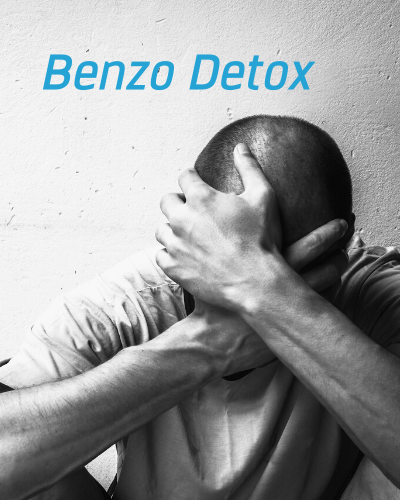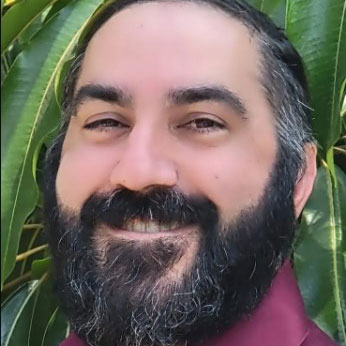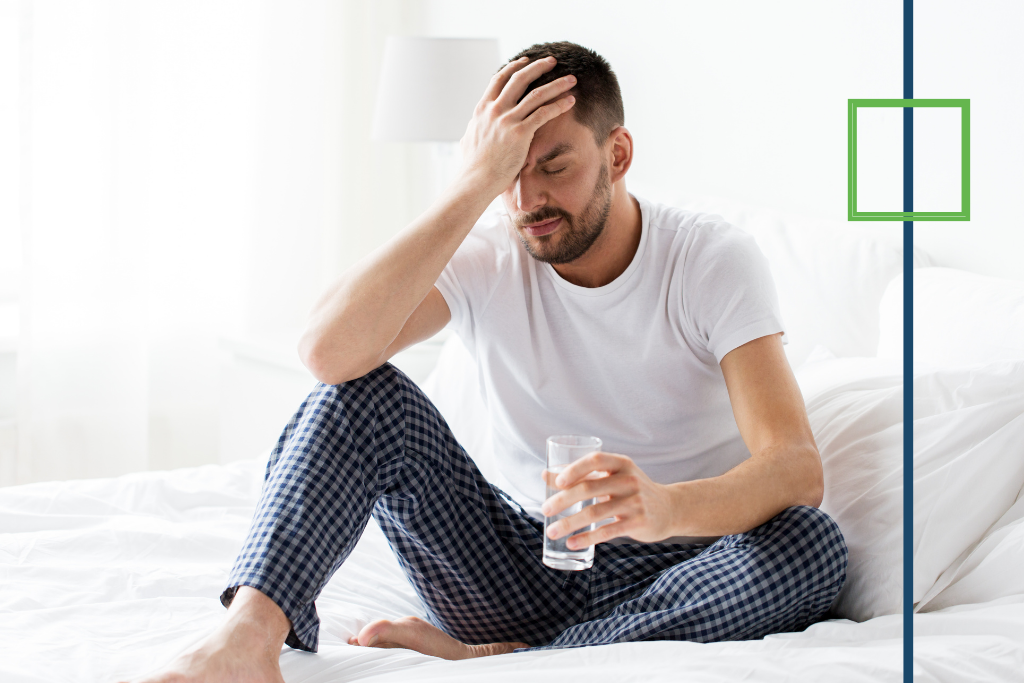What is Benzodiazepine?
A benzodiazepine, or benzo, is the name of a class of drugs used to treat various conditions. Conditions commonly treated with benzos include insomnia, anxiety, sleep disorders, and even alcohol withdrawal. In addition, these substances act on the GABA receptors in the brain as they produce a very calming effect. Unfortunately, dependence can develop in as little as a month. High-risk patients or those with unstable medical conditions or a significant seizure history may benefit from admission to an inpatient service for benzodiazepine detox or withdrawal. [1]
Gamma-aminobutyric acid or GABA is a naturally occurring amino acid that works as a neurotransmitter in your brain.
Types of Benzodiazepines
There are many different benzodiazepines on the market. Doctors may prescribe one over the other for several reasons. Perhaps their patients have seen more progress for one over the other, or the formulation of specific benzo is known to meet a particular client’s needs better. Furthermore, here is a list of the different types of benzos with their generic and brand names.
- Alprazolam (Xanax, Xanax XR)
- Clobazam (Onfi)
- Clonazepam (Klonopin)
- Clorazepate (Tranxene)
- Chlordiazepoxide (Librium)
- Diazepam (Valium, Diastat Acudial, Diastat)
- Estazolam (Prosom – discontinued brand in the US)
- Lorazepam (Ativan)
- Oxazepam (Serax – discontinued brand in the US)
- Temazepam (Restoril)
- Triazolam (Halcion)
Benzodiazepine Side Effects
- Drowsiness
- Confusion
- Dizziness
- Trembling
- Impaired Coordination
- Vision Problems
- Grogginess
- Feelings of Depression
- Headache
Long Term Side Effects
- Possible Dementia
- Physical Dependence
- Overdose
Benzo Overdose
The most significant risk of using benzodiazepines and a reason to get into a benzo addiction treatment program is likely overdosing. With a capacity for developing a tolerance, the longer someone takes benzodiazepines, the greater dosage they will probably need to take to reach the desired effect. Hence, the greater the risk of overdosing. In addition, sedative benzos cause breathing to slow. In turn, less oxygen is directed through the lungs to the brain and the rest of the body. Finally, once you take a larger dose, breathing delays to the point of being fatal.
Benzodiazepine Detox Withdrawal
Basically, the benzo withdrawal symptoms will differ depending on how the benzodiazepine detox process is administered. For instance, in a professional detox center where the client is weaned off properly, symptoms can occur and include feeling sleepy and depressed and sweating and chills. The following are the significant symptoms of withdrawal from benzos.

Skip to:
Learn more:
Ask Dr. Al: How To Overcome Benzodiazepine Withdrawal? A Patient Recovery Story
Overcoming benzodiazepine withdrawal can be a challenging but necessary journey for those who have developed a dependence on these medications. The key to success is gradual tapering under the guidance of a healthcare professional. Abruptly stopping benzodiazepines can lead to severe withdrawal symptoms, including anxiety, insomnia, and even seizures. A tapered withdrawal plan allows the body to adapt to lower doses, minimizing discomfort gradually.
Additionally, healthy lifestyle choices, such as regular exercise, a balanced diet, and adequate sleep, can help manage withdrawal symptoms. Support from friends, family, and support groups can provide emotional assistance during this process. Seeking professional therapy or counseling can also be beneficial in addressing the underlying issues that led to benzodiazepine use and dependence. Patience and persistence are crucial when overcoming benzodiazepine withdrawal, as it is a gradual and individualized process.
Benzodiazepine Detox Recovery Story Inspired By True Events
Dr. Al and the We Level Up detox team’s compassionate and holistic approach played a pivotal role in helping a patient, who we will call John Doe, recover from a debilitating benzodiazepine addiction. Understanding that addiction is a complex issue, he began by carefully assessing John Doe’s unique needs, including the extent of their addiction and any underlying psychological or physical problems. Dr. Al collaborated with We Level Up specialists, including therapists and addiction counselors, to develop a tailored treatment plan.
This plan involved a gradual tapering of benzodiazepines to minimize withdrawal symptoms, coupled with therapeutic interventions like cognitive-behavioral therapy and counseling to address the emotional aspects of addiction. The We Level Up treatment team also emphasized the importance of support systems, encouraging the patient’s family and friends to participate in the recovery process actively. Over time, with Dr. Al and We Level Up’s unwavering support and John Doe’s dedication, they successfully overcame their benzodiazepine addiction. They began the journey towards lasting sobriety, regaining control of their life. Dr. Al’s comprehensive and empathetic approach exemplified the power of medical expertise and a caring doctor-patient relationship in overcoming addiction.
We Level Up’s commitment to John Doe’s recovery didn’t end with the initial phase of treatment. They recognized that sustained support was vital for long-term success. Regular check-ins, medication management, and counseling sessions continued to be a fundamental part of the patient’s recovery plan. Dr. Al and the We Level Up treatment team also helped the patient establish new routines and coping strategies, promoting a healthier lifestyle emphasizing exercise, nutrition, and stress management techniques.
Throughout the recovery journey, Dr. Al and his team provided unwavering encouragement and a safe space for John Doe to discuss their struggles and successes openly. This ongoing support bolstered John Doe’s resilience and determination. It was under Dr. Al and the We Level Up team’s guidance that John Doe began to rebuild their self-esteem and regain their self-confidence, leading to a renewed sense of purpose and a healthier, addiction-free life.
The success story of John Doe not only demonstrated Dr. Al We Level Up’s expertise but underscored the power of a compassionate and multidisciplinary approach to addiction recovery. John Doe’s transformation into a thriving, sober individual was a testament to the possibilities of overcoming benzodiazepine addiction with the proper medical care, emotional support, and a dedicated healthcare provider like Dr. Al by their side.
Introducing Dr. Al: A Specialist in Addiction Studies and Mental Health Disorders.
With over 15 years of expertise in behavioral health, Dr. Al has dedicated his career to transforming lives. He, his team, plus the We Level Up treatment center network have successfully guided countless patients through the most daunting obstacles they have ever encountered. Join Dr. Al and We Level Up on a journey toward healing and triumph. Learn more about Dr. Al here.

Benzodiazepine Fact Sheet
What class of drugs is Benzodiazepine in?
The primary chemical structure of the class of depressive medications known as benzodiazepines, also referred to as “benzos,” is the union of a benzene ring and a diazepine ring. They are marketed as a treatment for seizures, sleeplessness, and anxiety problems.
Benzodiazepine Indictations
Anxiety disorders, sleeplessness, acute status epilepticus, inducing amnesia, spastic disorders, seizure disorders, and agitation are only a few of the indications for using benzodiazepines.
Benzodiazepine Pills
By increasing the amount of the inhibitory neurotransmitter GABA in the brain, benzodiazepines, also known as “benzos,” help to relax or sedate a person. Diazepam (Valium), alprazolam (Xanax), and clonazepam (Klonopin) are examples of common benzodiazepines.
What kind of drugs are Benzodiazepines?
Nitrazepam, Diazepam, Lorazepam, Clonazepam, Chlordiazepoxide, Temazepam, Triazolam, Oxazepam, & alprazolam.
Mechanism of action of Benzodiazepine
Pharmacology. A class of CNS depressants known as benzodiazepines produces sensations of calm (anxiolysis), tiredness, and sleep. They work by making it easier for the inhibitory neurotransmitter GABA to attach to its numerous GABA receptors throughout the central nervous system.
Benzodiazepine prescription
Benzodiazepines can only be obtained legally with a prescription. By obtaining prescriptions from many doctors, falsifying prescriptions, or purchasing them illegally, many users keep their medication supplies stocked. The two benzodiazepines that are most frequently seen on the black market are alprazolam and clonazepam.
Benzodiazepine Addiction Statistics
In the short term, benzodiazepines, including sedatives and sleep aids, are frequently used to treat anxiety and insomnia. Although benzodiazepine usage is very common among adults in the United States, it is unknown by public health professionals how many of these users abuse their medication or fulfill the criteria for benzodiazepine use disorders. According to a recent investigation, even among people who misuse benzodiazepine drugs, benzodiazepine use problems are quite uncommon.
12.5%
In the US, 12.5% of individuals take benzodiazepines.
Source: NCBI
2.1%
In the US, 2.1% of adults abuse benzodiazepines.
Source: NCBI
0.2%
In the United States, 0.2% of adults suffer from benzodiazepine use disorder.
Source: SAMHSA

Get Your Life Back
Find Hope & Recovery. Get Safe Comfortable Detox, Addiction Rehab & Mental Health Dual Diagnosis High-Quality Care at the We Level Up Treatment Centers Network.
Hotline (877) 378-4154Benzodiazepine Withdrawal Symptoms [2]
Benzodiazepine withdrawal becomes much more severe and fatal most especially without medical supervision. You may develop Benzodiazepine Withdrawal Syndrome which could cause more painful effects on your body and mind.
General
- Headache
- Palpitations
- Sweating
- Tremor
- Muscle pain, stiffness, and aches (limbs, back, neck, jaw)
Neurological
- Dizziness
- Paraesthesia or shooting pains in the neck and spine
- Visual disturbances (blurred vision, diplopia, photophobia, image lags behind eye movements)
- Tinnitus
- Faintness and dizziness, a sense of instability
- Confusion, disorientation (may be intermittent): A common cause of disorder in older patients
- Delirium (in the absence of autonomic hyperactivity): Particularly in older patients
- Delusions, paranoia
- Hallucinations (visual, auditory)
- Grand mal seizures 1–12 days after discontinuing benzodiazepines
Gastrointestinal
- Nausea
- Anorexia
- Diarrhea (may resemble irritable bowel syndrome)
Psychological
- Rebound insomnia, nightmares
- Anxiety, panic attacks
- Irritability, restlessness, agitation
- Poor memory and concentration
- Perceptual distortions – sensory hypersensitivity (light, sound, touch, taste), abnormal sensations (e.g., ‘cotton wool’ sensations)
- Metallic taste
- Distortions of body image
- Feelings of unreality, depersonalization, derealization
- Depression, dysphoria
Get Help. Get Better. Get Your Life Back.
Searching for Accredited Drug & Alcohol Rehab Centers Near You? Or Mental Health Support?
Even if you have failed previously, relapsed, or are in a difficult crisis, we stand ready to support you. Our trusted behavioral health specialists will not give up on you. Call us when you feel ready or want someone to speak to about therapy alternatives to change your life. Even if we cannot assist you, we will lead you wherever you can get support. There is no obligation. Call our hotline today.
FREE Addiction Hotline – Call 24/7
Benzodiazepine Detox Withdrawal Timelines
Much like detoxing from other prescription drugs, benzo withdrawal timelines can differ from case to case. For someone who was using short-acting benzos, withdrawal symptoms may begin to present themselves in as little as 6 to 8 hours. However, if a longer-acting benzodiazepine was used, it could be 24 to 48 hours before symptoms are observed. Withdrawal symptoms typically last about four days. And, rebound symptoms may last about 2-3 days from when they begin.
Rebound Symptoms from Benzos
In addition to withdrawal symptoms, benzo detox most commonly also brings on rebound symptoms. Rebound symptoms are the return of symptoms that may have been present at the start of taking the medication, and the symptoms may intensify for a few days. This may include insomnia, anxiety, and stress. However, as the body adjusts through the detox process, these symptoms will likely subside or decrease.
First-class Facilities & Amenities
World-class High-Quality Addiction & Mental Health Rehabilitation Treatment
Rehab Centers TourRenowned Addiction Centers. Serene Private Facilities. Inpatient rehab programs vary.
Addiction Helpline (877) 378-4154Proven recovery success experience, backed by a Team w/ History of:
15+
Years of Unified Experience
100s
5-Star Reviews Across Our Centers
10K
Recovery Success Stories Across Our Network
- Low Patient to Therapist Ratio
- Onsite Medical Detox Center
- Comprehensive Dual-Diagnosis Treatment
- Complimentary Family & Alumni Programs
- Coaching, Recovery & Personal Development Events
Benzo Withdrawal Treatment
Benzodiazepine withdrawal can be difficult and it is important to have a Benzodiazepine detox plan in place before you start Benzodiazepine tapering. Benzodiazepines come in many forms, which means that there are many Benzodiazepine withdrawal symptoms. Benzodiazepines include Benzodiazepine pills and Benzodiazepines that are taken orally, Benzodiazepines that are snorted, Benzodiazepines that can be smoked or injected, and Benzodiazepine liquids.
Benzodiazepine withdrawal symptoms usually peak within the first week of Benzodiazepine detox and begin tapering off after about 3 weeks. Benzodiazepines should never be stopped suddenly or without close Benzodiazepine doctor supervision and guidance, as Benzodiazepine withdrawal symptoms can be dangerous and extremely unpleasant is very recommendable to find out a Benzodiazepine Detox treatment.
Detox Centers
Detox centers are inpatient rehab facilities that provide medical detox for substance abuse issues. Cognitive Behavioral Therapy (CBT) is used to treat addicts during withdrawal.
Residential or Inpatient Rehab
Treatment begins when the patient checks into the facility and typically lasts 5-7 days depending on their needs, including medications if necessary. Patients will attend group meetings, morning lectures, and one-on-one sessions. After completing detox, patients are transferred to an outpatient facility to continue with CBT for 12 weeks.

World-class, Accredited, 5-Star Reviewed, Effective Addiction & Mental Health Programs. Complete Behavioral Health Inpatient Rehab, Detox plus Co-occuring Disorders Therapy.
CALL (877) 378-4154End the Addiction Pain. End the Emotional Rollercoaster. Get Your Life Back. Start Drug, Alcohol & Dual Diagnosis Mental Health Treatment Now. Get Free No-obligation Guidance by Substance Abuse Specialists Who Understand Addiction & Mental Health Recovery & Know How to Help.
Benzodiazepine Detox at Home
As mentioned above, benzodiazepine detox can lead to severe withdrawal symptoms. However, proper care can reduce the probability of developing these symptoms and ensure a safe detox process. Generally, this means that the individual detoxing will be weaned off of the substance slowly. Depending on their biology, dosage, and frequency of use, the time it takes to taper off will vary. Trying the benzodiazepines detox at home would be a grave mistake, as benzo’s withdrawal symptoms can be unpredictable and dangerous to deal with without medical assistance.
Partial Hospitalization Programs
These provide some psychoeducation for addicts on what they can expect during withdrawal, along with medications as needed. These are programs that last 6-8 hours per day, 5 days each week. Most of the time is spent attending lectures and group therapy sessions.
Benzodiazepine Addiction: Detox Treatment
Benzo addiction can have social and psychological effects on those who struggle with it. Some may find these effects to be the most significant difficulty they encounter. However, for others, it is the physical effects that are the scariest. When one stops taking benzodiazepines without tapering off, severe symptoms such as tremors, seizures, and even death can occur. For this reason, professional treatment at a medical benzodiazepine detox facility is crucial.
Once the benzo detoxification process has been safely completed, then an individualized treatment plan is developed. Most importantly, during treatment, individuals who have struggled with benzo addiction will learn skills and mechanisms to help them stay off these drugs and lead better lives.
Benzodiazepine Detox Center NJ: If you or someone you love struggles with an addiction to Ativan, valium, or any other form of benzodiazepine, get them the help they need and deserve. Contact our team at We Level Up New Jersey to get started today!
Experience Transformative Recovery at the We Level Up Treatment Center.
See our authentic success stories. Get inspired. Get the help you deserve.



Start a New Life
Begin with a free call to an addiction & behavioral health treatment advisor. Learn more about our dual-diagnosis programs. The We Level Up treatment center network delivers various recovery programs at each treatment facility. Call to learn more.
- Personalized Care
- Caring Accountable Staff
- World-class Amenities
- Licensed & Accredited
- Renowned w/ 5-Star Reviews
We’ll Call You
Sources
[1-2] Management of Benzodiazepine Misuse and Dependence – National Center for Biotechnology Information
American Psychiatric Association. Diagnostic and Statistical Manual of Mental Disorders, Fifth Edition. Washington D.C. American Psychiatric Association. 2013.
U.S. National Library of Medicine. Medline Plus. Alprazolam. (2015). Retrieved on June 24, 2015 from: http://www.nlm.nih.gov/medlineplus/druginfo/meds/a684001.html
The Coleman Institute. (2015). Rapid Detox FAQ. Retrieved on June 24, 2015 from: https://thecolemaninstitute.com/about-addiction/faqs/accelerated-opiate-detox-faqs/
U.S. National Library of Medicine. (1994). The benzodiazepine withdrawal syndrome. Retrieved on June 24, 2015 from: http://www.ncbi.nlm.nih.gov/pubmed/7841856
American Family Physician. (2000). Generalized Anxiety Disorder. Retrieved on June 24, 2015 from: http://www.aafp.org/afp/2000/1001/p1591.html
U.S. National Library of Medicine. (2014). Benzodiazepine dependence and its treatment with low dose flumazenil. Retrieved on June 24, 2015 from: http://www.ncbi.nlm.nih.gov/pubmed/23126253
Benzo.org.uk. (2004). PROTRACTED WITHDRAWAL SYMPTOMS FROM BENZODIAZEPINES. Retrieved on March 2nd at https://www.benzo.org.uk/pws04.htm
Benzo.org.uk (2002) Benzodiazepines: How They Work and How to Withdraw. Retrieved on March 2nd at https://www.benzo.org.uk/manual/bzcha03.htm#26